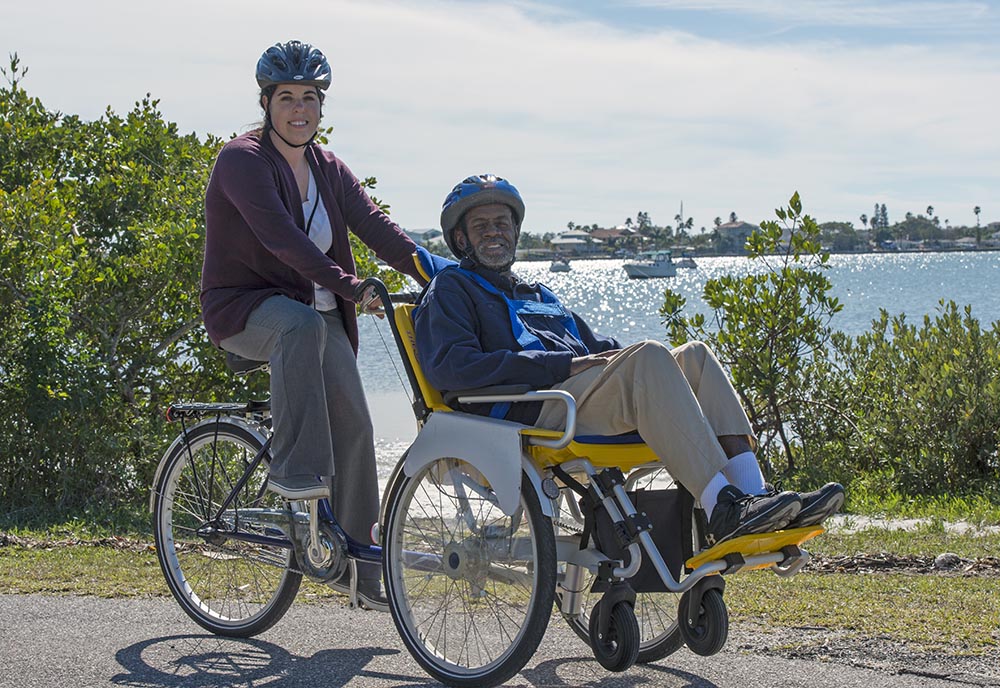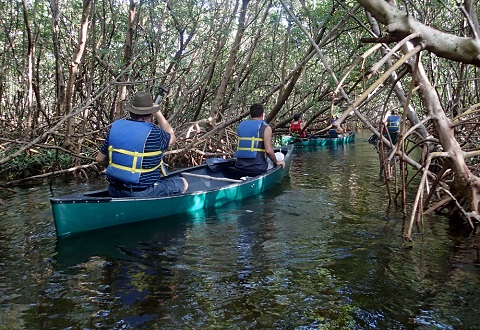Veterans Health Administration
The Success of Recreation Therapy for Veterans

Recreation therapists have unique training regarding the physical and leisure needs of Veterans.
The Success of Recreation Therapy for Veterans
We’ve been at this for 150 years!
February is Recreation Therapy Month, a time set aside to recognize the importance of Recreation Therapy in the overall improvement of health and wellness for millions of Veterans nationwide.
And it’s been around a while. Check out this article by VHA Historian Darlene Richardson:
Recreational facilities and leisure activities have been important elements of Veterans’ health care for nearly 150 years—ever since the first Federal Veterans facilities were established after the Civil War.
By 1875, four branches of the National Home for Disabled Volunteer Soldiers (VHA origins) were established and housed thousands of Civil War veterans. Recreation was critical for many reasons, according to the National Homes’ annual report that year: “Amusements tend to drive away dull care, and keep the men in a pleasant and cheerful state of mind. All these tend to make discipline easier and to render the men contented and comparatively happy, and to improve their morals...”
The term Recreation Therapy was introduced in the 1950s as an evidenced-based approach to rehabilitation and treatment.
VA Recreation Therapy and Creative Arts Therapy services provided throughout the VA Health Care System include acute, outpatient, home-based and community settings offering wide-ranging therapies such as: recreation, art, dance/movement, drama, and music.
Again, from 1875:
Most National Homes had lakes with boats, swans, ducks, beautiful flowers, and meandering pathways with benches for the men to relax, get some exercises, and enjoy the fresh air. Several National Homes established zoos or “deer parks” and literally every Home had its own band that doubled as an orchestra for theatre acts. Many National Home band members went on to have successful careers away from the homes and influenced American modern music.
Recreation Therapy and Creative Arts Therapy assist in improving function and ability, but also use interventions that are individualized and holistic, incorporating Veterans’ interests, family, community, and lifestyle.
Along with improving quality of life, Recreation Therapy and Creative Arts Therapy enhance and maintain physical and cognitive abilities, provide opportunities for social communication skill development, creative expression, as well as spiritual expression.
Recreation Therapy and Creative Arts Therapy provide therapeutic options for those individuals who resist other treatment approaches or may be unaware of their conditions or issues inhibiting their rehabilitation recovery.
Recreation Therapy and Creative Arts Therapy enhance physical and cognitive abilities.

Recreation Therapy improves functioning through meaningful therapeutic activities.
Over 800 Recreation Therapists and Creative Arts Therapists across the VA system work with Veterans every day building confidence and self-esteem by focusing on strengths, and by developing skills that make success possible.Centering on Veteran strengths diminishes the focus from disability to ability, increasing function and independence, promoting wellness and prevention, and restoring quality of life.
Recreation Therapy and Creative Arts Therapy interventions are designed to improve quality of life. Functional outcomes of therapy and activities are measurable and important to establishing an evidence-based approach to care.
Outcomes include improved physical health and capability to accomplish daily life activities, as well as improved mental health and relationships with others.
Learn more here.
And one last time, from 1875:
Experience has shown that it is best for the disabled soldier to remain upon the grounds of the Home, where he is free from the temptations that beset all outside. For this reason, it has been a cherished object to make the homes pleasant and attractive and to provide them everything that could tend to make the Veterans not only comfortable, but contented and happy.
Want more history?



















